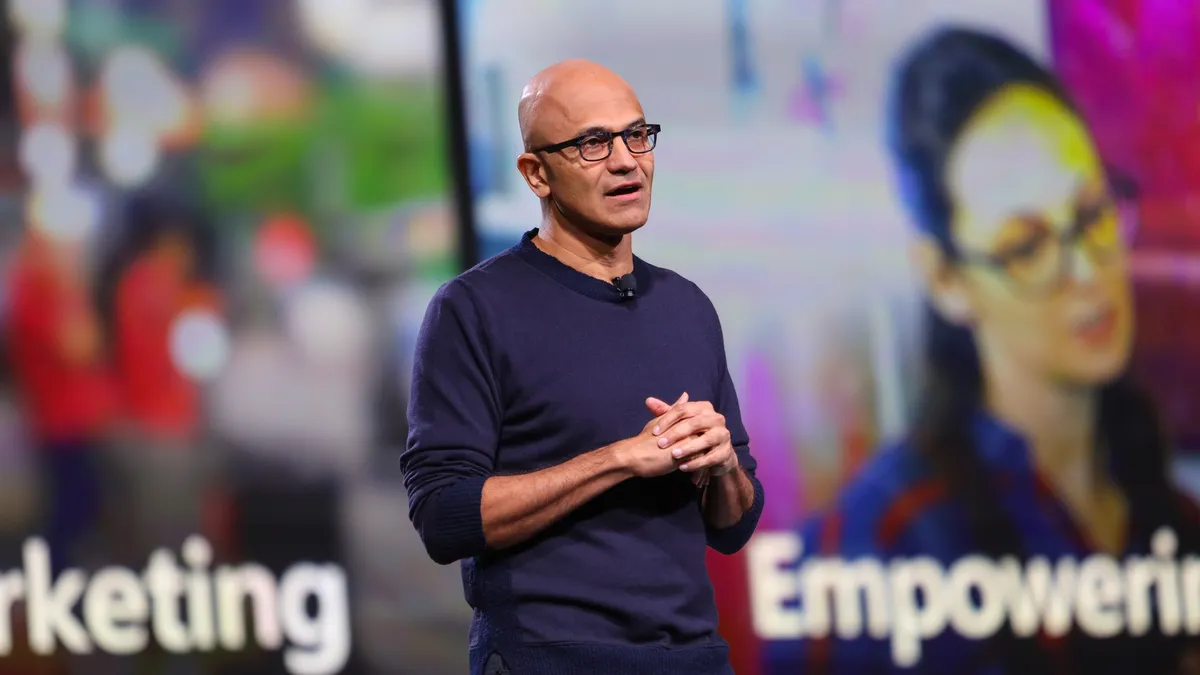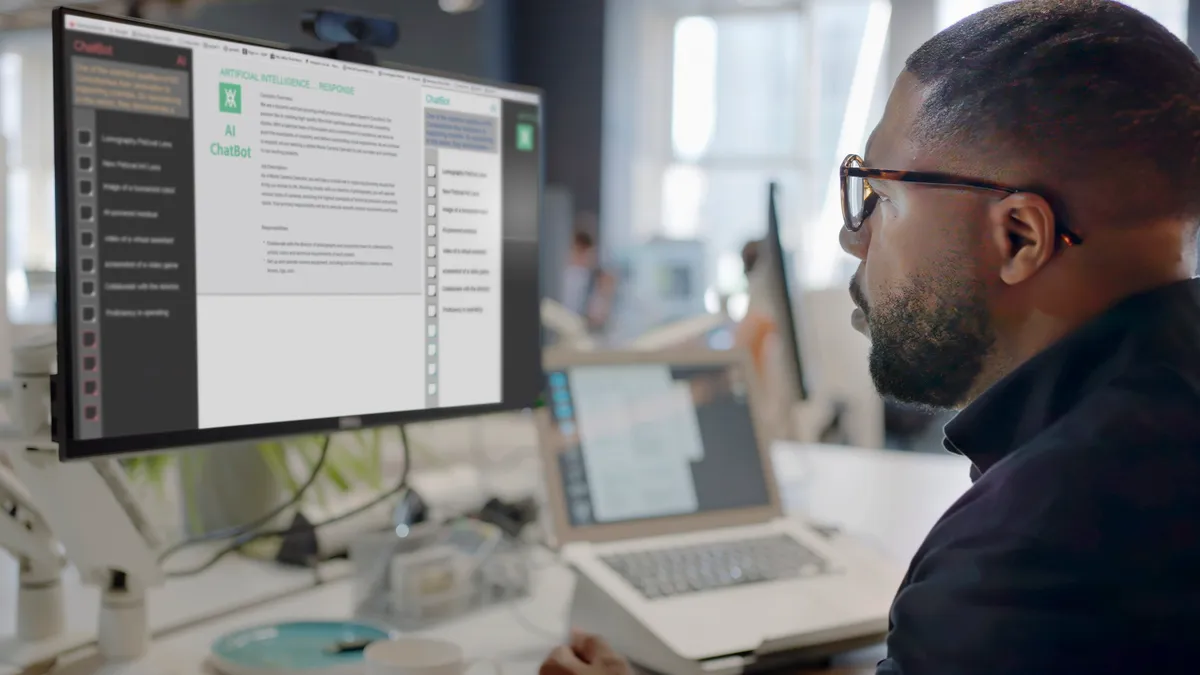NEW YORK — Starbucks, powered by Microsoft Azure, developed an internal artificial intelligence initiative called Deep Brew for churning out cross-channel recommendations.
Deep Brew personifies Microsoft CEO Satya Nadella's call to retailers: resist growing dependent on tech vendors. Microsoft, which hosts 92 of the top 100 retailers on its cloud, wants businesses to own their technology; or, at the very least, their innovation.
With "commodity technology that you incorporate [into] your company, into your operation, the most important thing is what's the proprietary digital technology," said Nadella, while speaking at the National Retail Federation (NRF) conference in New York Sunday.
Bringing back office IT operations to the front office can be riddled with gaps, which is where vendors can aid enterprise customers.
"You cannot be pulled by association with a tech vendor, you have to be pulled on your own," he said. "You have to really take pride in the digital capability you have to build. No press release with us or anyone else is going to do it for you."
"You will need to build your digital capabilities and trust," said Nadella.
Nadella wants retailers to take ownership of their "tech intensity," which includes:
-
Personalization
-
Anywhere commerce
-
Digital commerce marketing
-
Empowering employees
Personalization gold
Consumers expect companies they love to offer tailored experiences. Nearly one-third of e-commerce sales result from recommendations, according to Nadella.
Data in a central hub, free of silos, can direct a recommendation engine.
Microsoft uses personalization in its stores where Xbox consoles can serve Microsoft merchandising "content" for gamers. The company uses technology based on reinforcement learning that's "learning every day, all the time in real time," he said.
The technology uses a "reward function" when a user clicks on something, the reward function changes and updates the model to change current merchandising. Microsoft can check what devices users were on, what games they played, what games were bought and so forth — all feeding the recommendation engine.
Retailers sit on a goldmine of consumer data. There are 40 TB of data generated hourly in the retail industry.
"Retailers are the keepers of the most important consumer data," said Nadella. "So you have to build trust, whether it's security, whether it's privacy, whether it's ethics or on AI, they're going to be front and center issues."
Connecting commerce
While customers shop online, they can opt for in store pickup. The fusion of the two experiences is forcing retailers to perfect every aspect of the customer journey.
Walmart, a Microsoft customer, is doing this "at scale," said Nadella. "We're learning so much from them."
Boasting 85% of the U.S. population as customers, Walmart built a IoT cloud platform and location services for its mobile app, tapping into its amassed data.
A Walmart customer's purchase experience now includes:
-
A customer places an order on their mobile app
-
IoT takes on the sorting challenge of fulfillment
-
Customer's pickup arrival is sensed by geofencing
-
The customer is handed their mobile pickup order
Another approach to "anywhere" retail is taking "the physical retail itself and essentially embed computing," like Walmart did with its IoT solutions," said Nadella.
Retailers already do this with their websites and mobile apps, he said. "But what if the physical space itself had all of the computing signal, all of the analytical signal, that you now have on your website and mobile app?"
Empowering employees
Retailers, regardless of an employee's ranking, want their workforce to drive decisions by giving them data insights.
Ikea is working to empower its employees with streamlined communication. Across 374 stores in 30 countries, Ikea is working to connect its store associates, which Ikea exclusively refers to as "co-workers," according to Kenneth Lindegaard, VP of end user enablement at Ingka Group of the Ikea family, while speaking at NRF.
The "co-workers" identification is meant to break down the silos between corporate and front-line employees.
The mega-retailer is undergoing digital transformation to give its developers a "full blown modern experience," said Lindegaard. Ikea has reorganized itself to somewhat merge its employees who build the technology and the ones that use it.
"We all know legacy systems, we all have them," said Lindegaard, but customer experience comes first.
Ikea uses Microsoft Teams to bring front-line employees "into the whole [Microsoft] 365 universe," Lindegaard later told CIO Dive. It's a "citizen innovation" to move away from a corporate model that told employees how to use their tools.




















